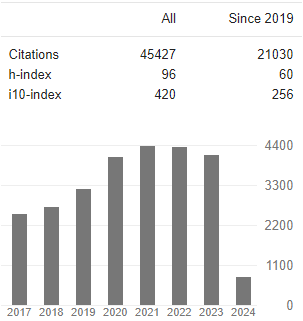Body Mass Index (BMI) Assessment and its Impact on Severity and Prognosis of Patients with COPD
Abstract
Amine Meridj, Redouan Belala, Khaled Tlili and Yacine Djeghri
Introduction Chronic obstructive pulmonary disease (COPD) is responsible for impaired quality of life and a limitation of daily activity. Some studies have concluded that obese subjects have better respiratory function and thus a better quality of life. The aim of our work was to determine the impact of obesity and overweight on functional parameters, six-minute walking test (6MWT) performance, and severity and prognosis of COPD in this population.
Methods Sixty-one consecutive stable COPD patients were included after obtaining written informed consent. Demographic and clinical data, spirometric values, 6-minute walking distance, BMI and fat mass were collected for analysis.
Two groups were compared: G1 group of patients with BMI > = 25 kg/m2; G2 group of patients with BMI < 25 kg/m2 . The statistical study was carried out using SPSS 20.0 software.
Results The population in our study is almost exclusively male ,1 woman/60 men, the average BMI is 24.12 +/- 4.83 kg/m2 with extremes ranging from 14.6 to 36.9 kg/m2, the means of Fat mass (%) 21,75%,11.5% of our patients were obese, while 13.1% are lean 47.5% of our patients in the G1,doc group are overweight or obese, while 52.5% are in the G2 group strong correlations were observed between the body mass index and the various variables studied.
Conclusions Contrary to expectations, obesity is not necessarily associated with adverse effects during COPD. As our results show, The data from our work are consistent with those of the literature showing that overweight and obesity in patients followed for COPD are associated with better tolerance to effort and has less severe airway obstruction




